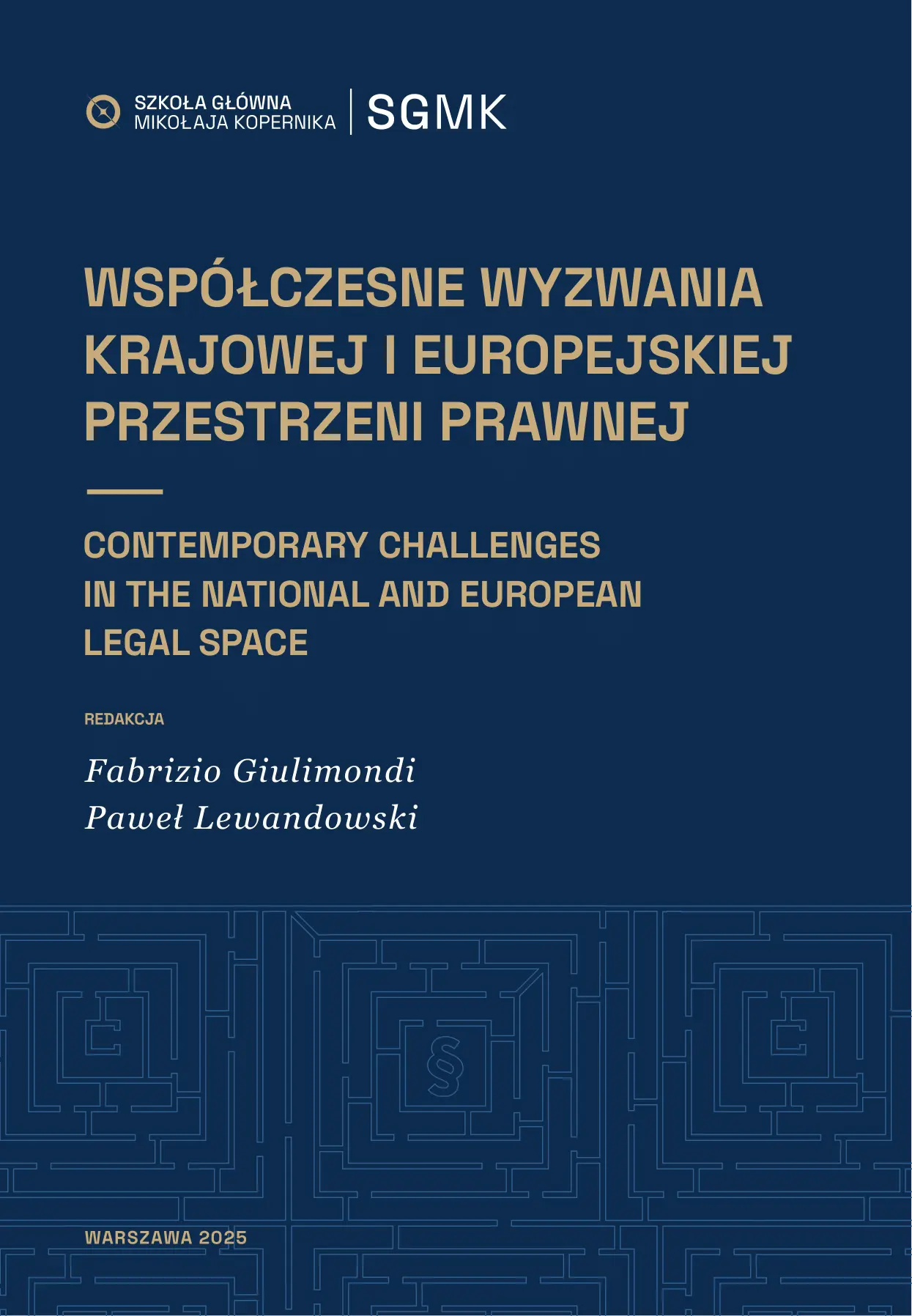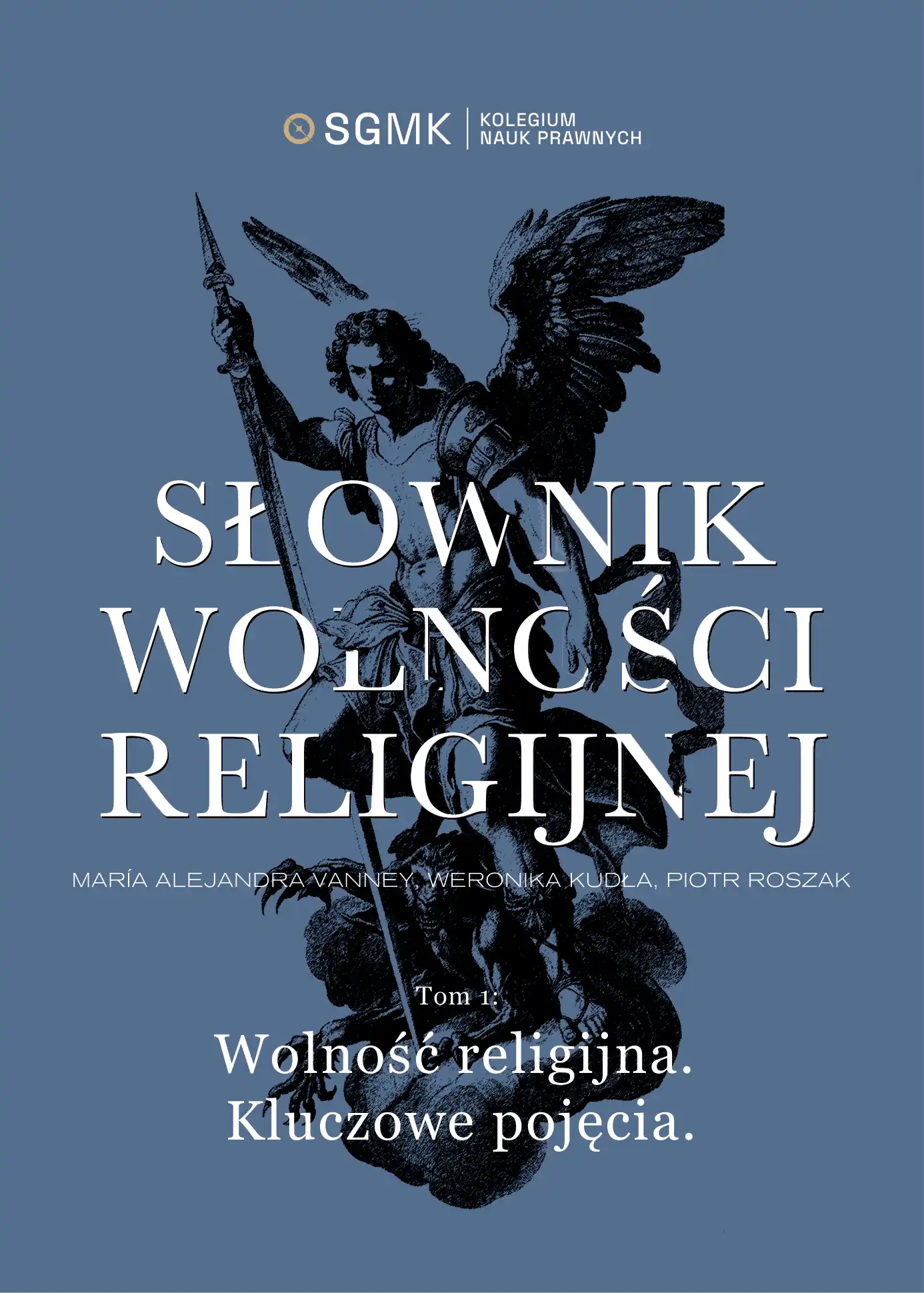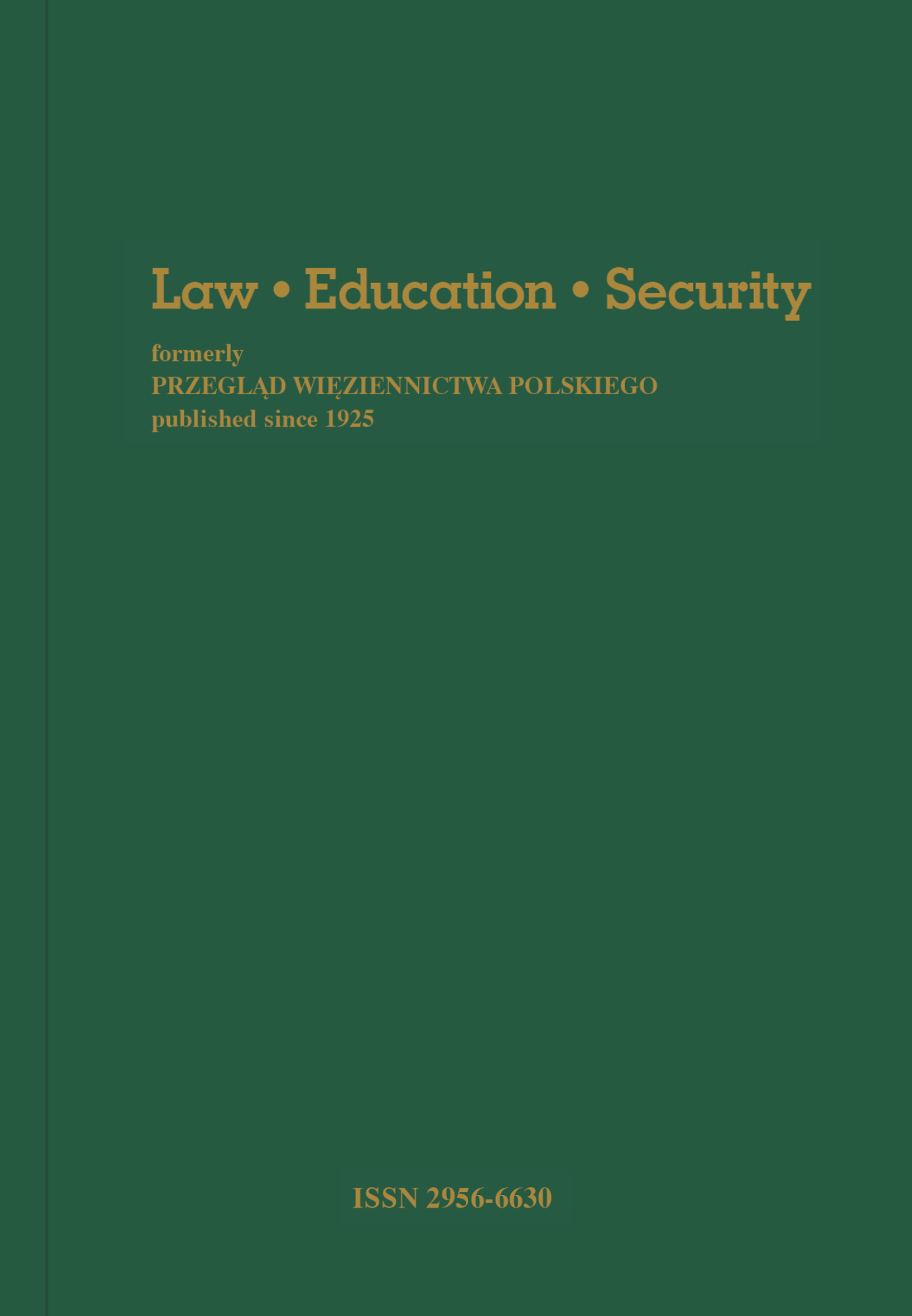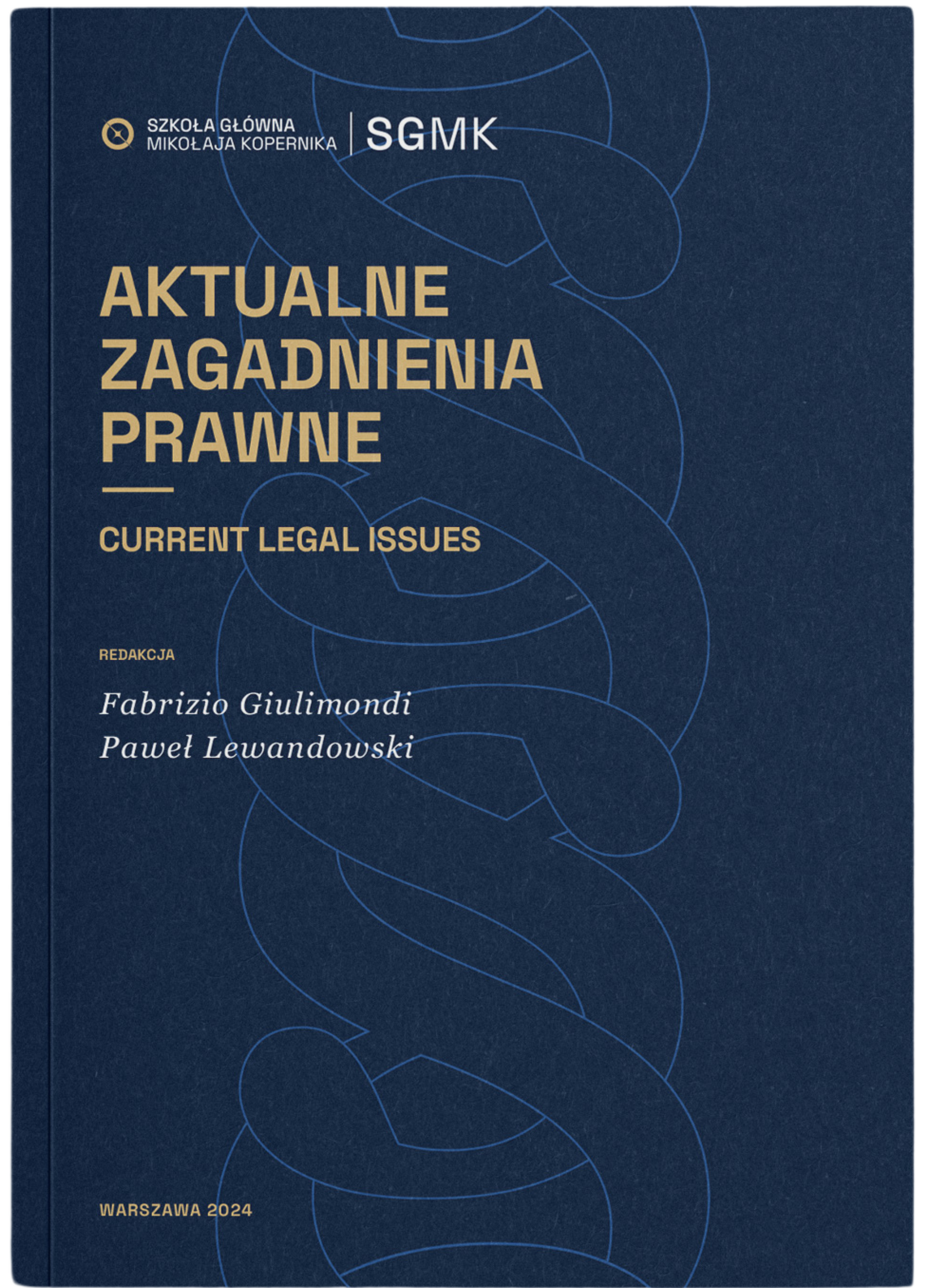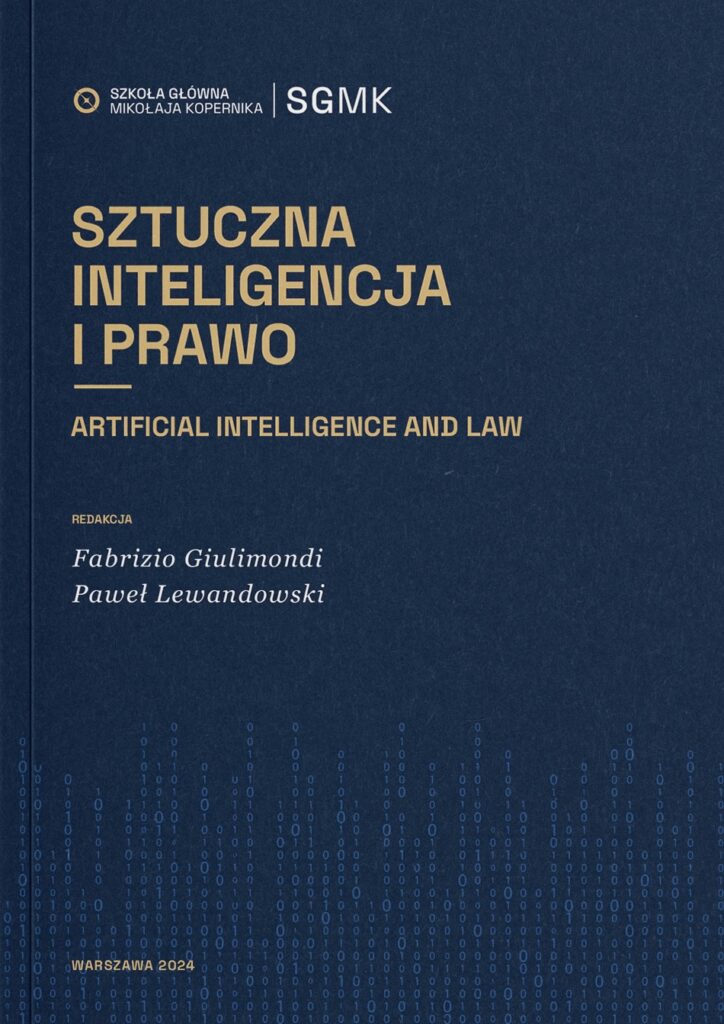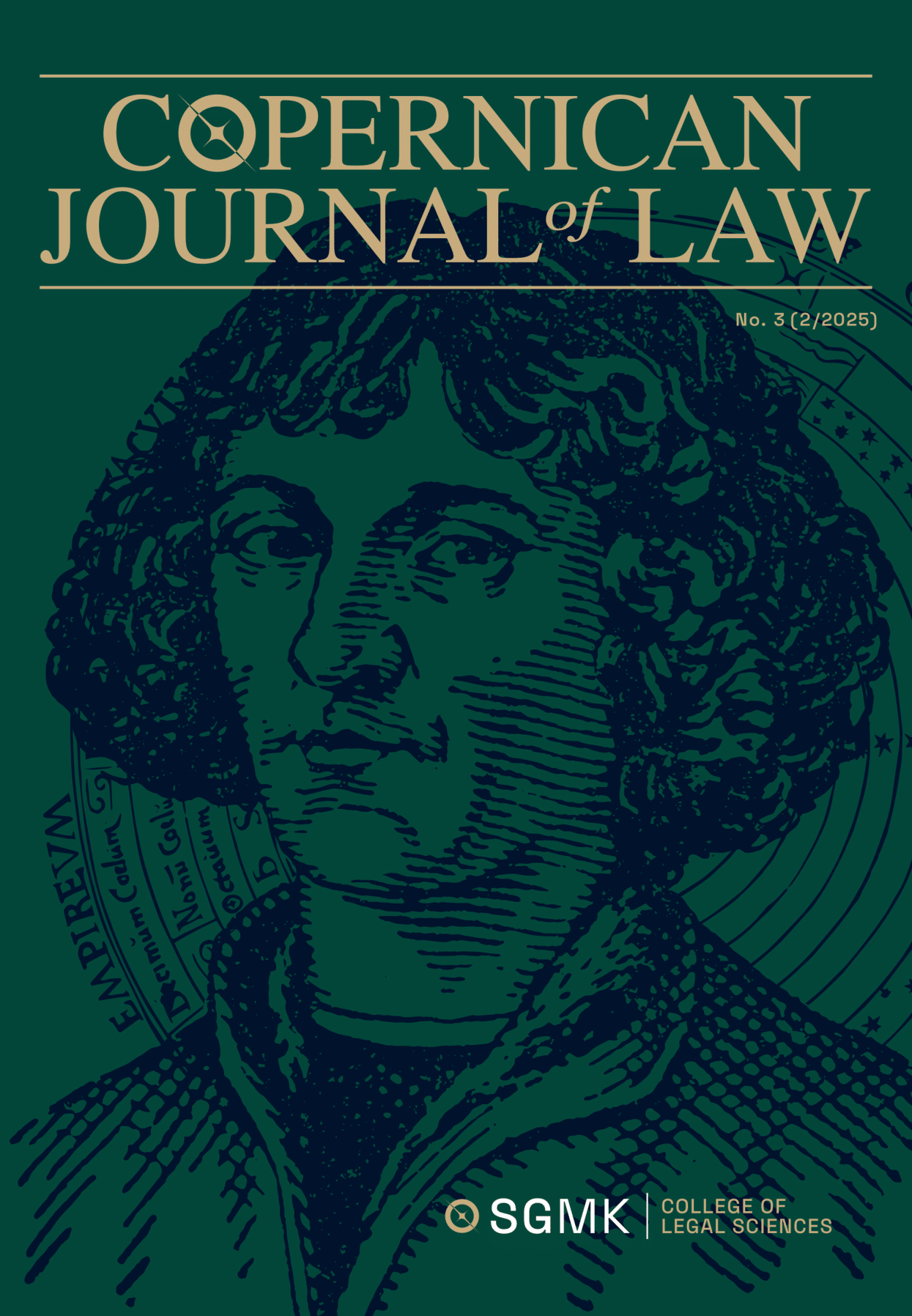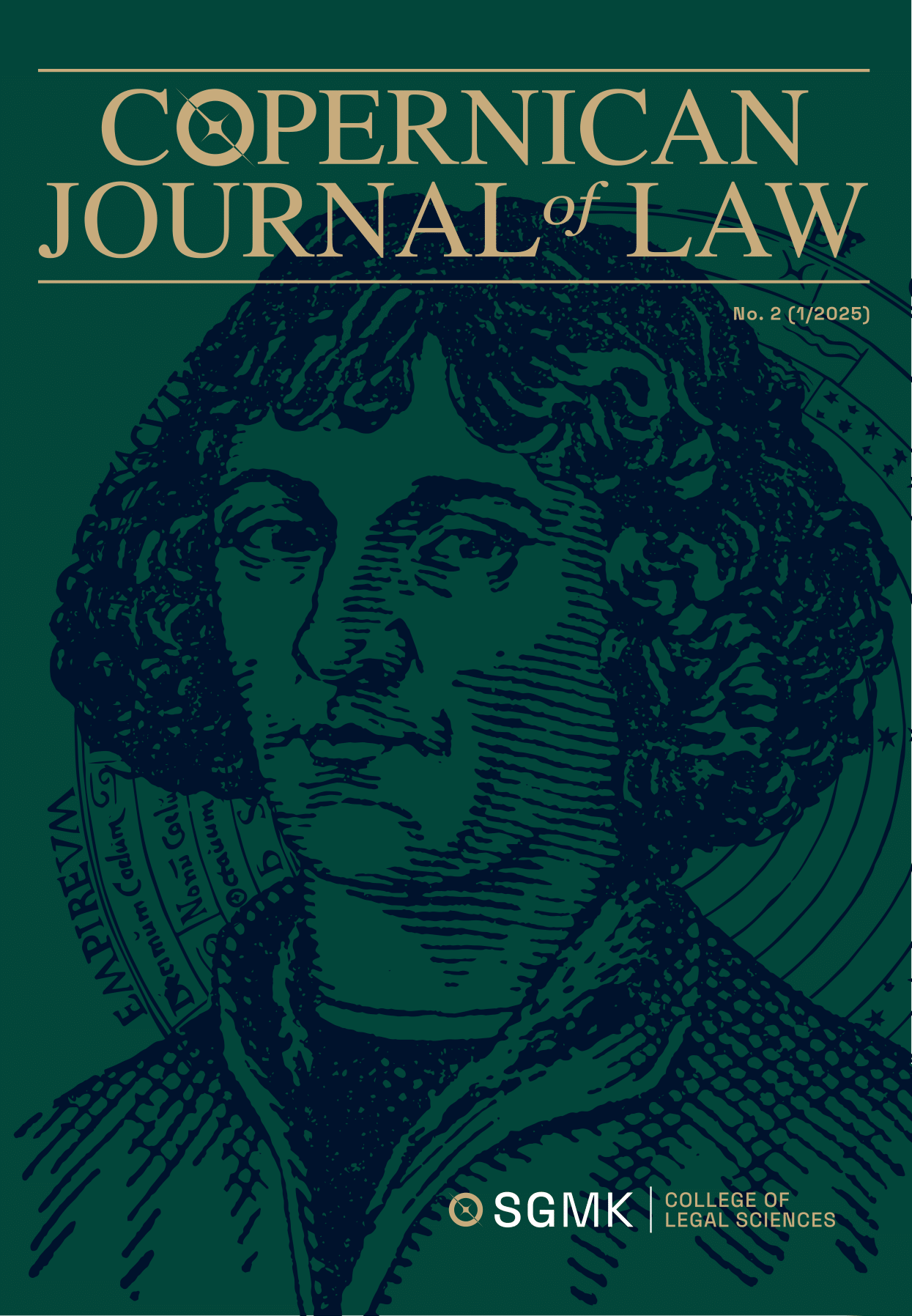SGMK Publishing
Policy of SGMK Publishing
The mission of SGMK Publishing is to disseminate and popularize the results of research, primarily of scientists of the university, as well as people associated through co-authorship of works, joint scientific research, participation in scientific events organized by SGMK.
The rules for qualifying publications in the SGMK Publishing are designed to ensure the highest substantive and technical quality of scientific publications.
Authors wishing to publish should familiarize themselves with the guidelines for the publishing process and the editorial guidelines.
SGMK Publishing applies the highest ethical standards. Before being accepted for publication, monographs and journals submitted to the publisher are reviewed for compliance with publishing ethics, integrity and scientific value of the publication.
All monographs undergo a double “blind” review. Contact the Publisher:
wydawnictwo@sgmk.edu.pl
Information for Authors
Downloadable materials (in Polish):
For more information in English and editorial requirements, please contact: wydawnictwo@sgmk.edu.pl
Latest Publications
“Characteristics of a contract for the provision of driving services as an alternative form of employment to an employment contract”
The monograph “Characteristics of a contract for the provision of driving services as an alternative form of employment to an employment contract” is an in-depth study of labor law, social security law, and transport law, devoted to the analysis of forms of employment of international road transport drivers following the entry into force of the EU Mobility Package regulations and the amendment of national regulations in 2022-2023.
The aim of the work is to conduct a comprehensive comparative analysis of employment contracts and civil law contracts for the provision of driving services, considered in the context of employment costs, social security contributions and taxation of remuneration, the scope of social protection for drivers, as well as the legal risks arising from the current state of legislation and court rulings. The author attempts to answer the question of the admissibility and rationality of using alternative forms of employment in the road transport sector, taking into account both national and European Union law.
The study is based on a dogmatic-legal analysis, a comparative method, and detailed economic and legal calculations, taking into account the diversity of transport types (bilateral, transit, cross-trade, cabotage) and the consequences of posting drivers to work in the territory of EU Member States. An important element of the work is the discussion of the effects of the amendment to the Act on Drivers’ Working Time and the impact of the Social Insurance Institution’s interpretation of 2024 on the methodology for determining the basis for calculating contributions and taxes.
The monograph fills a gap in the existing literature on the subject, which has focused primarily on issues of working time and the posting of drivers, omitting a comprehensive analysis of employment costs and the legal relationship between employment contracts and civil law forms of employment in international transport. The publication is an important voice in the discussion on the directions of development of labor and transport law in the context of the ongoing Europeanization of regulations concerning mobile workers.
The book is addressed to representatives of legal science, doctoral students and students of law, as well as practitioners dealing with labor law, social insurance, and legal services for companies in the transport, forwarding, and logistics sectors.
“Contemporary challenges in the national and European legal space”
The monograph Contemporary Challenges in the National and European Legal Space is a collection of fourteen academic articles devoted to the analysis of dynamic changes taking place in contemporary national, European, and international law. The publication is the result of the 2nd National Conference of Young Scientists, which took place on June 7, 2025, at the College of Legal Sciences of Nicolaus Copernicus Superior School in Lublin.
The authors reflect on law as an increasingly transnational phenomenon, shaped by dialogue between legal systems, the jurisprudence of constitutional and supranational courts, and the processes of globalization and European integration. Particular attention is paid to the role of comparative law, legal hermeneutics, and the concept of multilevel constitutionalism.
The thematic scope of the publication includes, among others:
- criminal and procedural law,
- labor and social security law,
- civil and commercial law,
- consumer and patient protection,
- new technology law and neuro-law,
- local democracy and local government,
- theory and philosophy of law.
The monograph is addressed to researchers, doctoral students, law students, and practitioners interested in contemporary legal challenges at the national and European level. The publication is a valuable contribution by the younger generation of researchers to the debate on the future of law in a complex, multi-level normative space.
“Dictionary of Religious Freedom” vol. 1
This publication is the result of international cooperation between scholars and researchers who objectively and systematically explain key concepts related to the right to religious freedom. The entries in the dictionary include historical perspectives on this right, its place in major religious traditions, links to human dignity and democracy, as well as legal grounds for possible restrictions.
Readers will find reliable analyses, bibliographies, and a glossary that facilitates understanding of the content. Thanks to its structure, the dictionary is not only a reference tool, but also an inspiration for further research and debate. It is an important book for scholars, students, and anyone interested in the issue of religious freedom from a global and local perspective.
“Law Education Security” - Special Edition I/2025
A special issue of Law Education Security magazine entitled “The European Union in the 21st Century: Economic, Legal, and Social Challenges” has been published.
The volume is devoted to the current and future challenges facing the European Union in the face of dynamic geopolitical, economic, social, and technological changes. The publication includes analyses of social policy, the labor market and demographics, the impact of new technologies on law and public administration, the future structure of the European Union, and the relationship between religion and society in the context of growing cultural diversity.
This issue is an important voice in the debate on the directions of the European Union’s development and an inspiration for further research on its constitutional identity, law, social policy, and economy.
“Current Legal Issues”
We present to you the second scientific monograph in the series Studies of the College of Legal Sciences in Lublin, titled Current Legal Issues, edited by Prof. Fabrizio Giulimondi and Rev. Dr. Paweł Lewandowski, published by the Scientific Publishing House of the Nicolaus Copernicus Superior School.
This volume is the result of the National Conference of Young Scientists entitled Current legal issues, which took place on June 22, 2024 at the College of Legal Sciences in Lublin. It addresses a growing demand – frequently expressed within academic circles – for platforms that enable early-career researchers and scientists to gain valuable conference experience and share their original scientific work.
The publication features twelve scientific articles by authors representing six academic centers, including one international contributor: Comillas Pontifical University in Madrid, Academy of Zamość, Cardinal Stefan Wyszyński University, Pontifical University of John Paul II in Krakow, University of Siedlce and Nicolaus Copernicus Superior School – the host and organizer of the conference.
Each article is accompanied by an abstract, keywords, and bibliography in both Polish and English, enhancing the accessibility and academic utility of the volume for an international audience.
We warmly invite scholars, students, and all those interested in contemporary legal thought to explore this diverse and insightful collection.
“Artificial Intelligence and the Law”
We are presenting the first scientific monograph Artificial Intelligence and the Law, edited by Fabrizio Giulimondi and Paweł Lewandowski, published by the SGMK Publishing as part of the dedicated series “Works of the College of Legal Sciences in Lublin”. It constitutes a collection of articles – reworked and expanded – that were previously delivered in the form of lectures during a panel entitled Artificial Intelligence and Law, on April 9, 2024, the first day of the Futurological Congress organized by SGMK.
The publication contains eight scientific articles focusing on the issues of artificial intelligence, in particular the legal aspects related to its implementation into more areas of social life and its effective functioning, the possibility of applying artificial intelligence in areas reserved for the legal profession or regulation in the area of digital security.
The authors of the published articles represent six academic centers: Università degli Studi di Roma “Foro Italico”, Nicolaus Copernicus Superior School, Cardinal Stefan Wyszyński University, Warsaw University of Technology, Police Academy in Szczytno and the Metropolitan University in Katowice.
COPERNICAN JOURNAL OF LAW
Copernican Journal of Law (CJL) is a biannual journal published by the College of Legal Studies of the Nicolaus Copernicus Superior School in Warsaw. It publishes scientific articles exclusively in English. The primary version is an electronic publication.
The journal is devoted to studies of legal sciences; in particular, papers are published on:
- History of law – the evolution of legal systems and their impact on modern legal regulation;
- Constitutional law – studies of constitutions and their impact on legal systems;
- Human rights – the protection and promotion of human rights in various legal systems;
load more
- Rule of law – accountability, fair law, open government, accessible and impartial justice;
- Criminal law and criminology – laws relating to crime and punishment, and research into the causes of crime;
- Administrative law and public policy – laws on public administration and administrative procedures;
- Family and custody law – regulations on family relations and child custody;
- Labor and social security law – regulations on labor relations and insurance schemes;
- European Union law – EU regulations and policies and their impact on member states;
- Canon and denominational law – regulations on church and denominational law and church-state relations;
- Cyber security and law – data protection and cyber regulations;
- Environmental law – regulations aimed at protecting nature and combating climate change;
- Artificial intelligence law – regulations concerning the development and use of artificial intelligence;
- Intellectual property law – protection of inventions, trademarks and copyrights;
- Law and economics – the interaction between legal regulations and economic processes;
- Law and bioethics – regulation of modern medical technologies: medical decision-making, genetic and reproductive technologies, human testing, human enhancement, etc.
Current Issue
Articles
Carl Schmitt and the Mystery of the Incarnation: A Theological Interpretation of the Rechtsverwirklichung | 9-33
Rafael Campos García Calderón
Beyond the Human: Generative Artificial Intelligence for the Cultural Heritage | 35-52
Andrea Marco Colarusso
The Value of the Principle Set Forth in c. 157 of the 1983 Code of Canon Law in the Context of Systemic Solutions of the Canonical Legal Order | 53-62
Ginter Dzierżon
The Collective Mind of the Court. Insights from a European Project on Collective Intentionality in Collegial Courts | 63-76
Marco Mazzocca
Handling a Cleric Impeded from Ministry due to Amentia or Psychic Infirmity | 77-95
John Okello Ogutu
Evolution and Challenges of Public Administration for a Modern Governance | 97-121
Simona Terracciano
Editorial Board
Editor-in-Chief:
Paweł Lewandowski (Nicolaus Copernicus Superior School, Poland) – ORCiD
Vice Editor-in-Chief:
Fabrizio Giulimondi (Nicolaus Copernicus Superior School, Poland) – ORCiD
Editor – Secretary of the editorial board:
María Alejandra Vanney (Nicolaus Copernicus Superior School, Poland) – ORCiD
International Advisory Board
Monika G. Bartoszewicz (UiT The Arctic University of Norway, Norway)
Carlos A. Casanova (University of Florida, USA)
Alona Dutko (Lviv State University of Internal Affairs, Ukraine)
David Forte (Cleveland Public University, USA)
Dimitry Gegenava (Sulkhan-Saba Orbeliani University, Georgia)
Miriam Laclavíková (Trnava University in Trnava, Slovakia)
Natalia Lesko (Lviv Polytechnic National University, Ukraine)
Jary Méndez Maddaleno (University of the Isthmus, Guatemala)
Raúl Madrid (Pontifical Catholic University of Chile, Chile)
Martha Miranda Novoa (University of La Sabana, Colombia)
Stanislav Přibyl (University of South Bohemia in České Budějovice, Czech Republic)
Gennaro Terracciano (University of Rome “Foro Italico”, Italy)
Fernando M. Toller (Austral University, Argentina)
Alejandro Torres Gutiérrez (Public University of Navarre, Spain)
Bartłomiej P. Wróblewski (SWPS University, Poland)
Mustafa Yasan (Izmir Democracy University, Türkiye)
Contact:
College of Legal Sciences
Fryderyk Chopin St. 6
20-026 Lublin, Poland
e-mail: sekretariat.knp@sgmk.edu.pl
Secretary:
María Alejandra Vanney
e-mail: maria.vanney@sgmk.edu.pl
For Authors
Publishing rules
Authors are invited to submit scholarly articles that are consistent with the scope and purpose of the Copernican Journal of Law.
The text should be original, i.e. as yet unpublished in whole or even in part. The text must not be submitted for publication in another journal at the same time.
The author should send the text for publication electronically to the College of Legal Studies of SGMK: cjl@sgmk.edu.pl.
The text should be saved in the format of one of the common word processors: Microsoft Word (all versions) or Open Office (all versions). Formatting of the text should be kept to a minimum, according to the guidelines for authors. A copy of the submitted materials should be kept on electronic media until publication.
Copyright: Creative Commons CC-BY 4.0.
The editorial committee reserves the right to disqualify the submitted text for the review procedure or printing due to the Author’s failure to comply with the substantive and formal requirements.
Along with the text, the Author is required to submit (send a scan to the College e-mail address) a statement of originality of the work (→ English version / → Polish version). The statement includes information on, among other things, the independence of the work, the contribution of other Authors, sources of funding for the work. The editorial committee thus ensures the highest degree of scientific integrity of the journal in accordance with the recommendations of the Committee on Publication Ethics (→ COPE – Committee on Publication Ethics).
The author is obligated to sign the contract (at the date indicated by the SGMK Publishing House) and send the original paper version of the contract (→ English version / → Polish version) with the GDPR clause (→ English version / → Polish version) to the address:
SGMK Nicolaus Copernicus Superior School
Nowogrodzka Str. 47a
00-695 Warsaw, Poland
The Editorial Committee does not charge any fees to Authors wishing to publish their scientific article. Therefore, it does not charge for the submission of the text for publication, the editorial and review process, the publication of the text online and in print, the number of pages, the use of color or images and photos.
The author is responsible for the factual data contained in the submitted text.
Along with the article – in a separate document – the author also sends the following information to the SGMK College of Legal Sciences e-mail address (cjl@sgmk.edu.pl):
- name; ORCID number; degree and academic title; affiliation; e-mail; postal address and telephone (for the exclusive use of the Editor).
Guidelines
About the Journal
Aimes and scopes
The purpose of the journal is:
- to publish valuable works that contribute to the development of legal science;
- to raise the standards of research and scientific publication in the field of law;
- to stimulate international discussion of current legal problems;
- to foster interdisciplinary cooperation between lawyers and experts from other scientific fields;
- to publish innovative legal research that takes into account the latest scientific and technological discoveries;
- to prove a forum for debate on the legal challenges posed by new technologies;
- to encourage innovative legal reforms that reflect the dynamic interaction between law and scientific progress;
- to study the consequences of implementing technological innovations in legal systems around the world;
- to increase awareness of the role of law in the development of science and technology;
- to encourage critical analysis of the current legal framework and its adaptability to future scientific discoveries;
- to promote interdisciplinary cooperation between legal and scientific scholars;
- to create a platform for the exchange of knowledge and experience between lawyers and scientists;
- to encourage reflection on the ethical aspects of law and science;
- to promote transparency and integrity in scientific research;
- to support young scientists in their academic and research careers.
Ethical principles
The Committee on Publication Ethics (COPE) indicates to Editors, Publishers, Reviewers and Authors the ethical standards applicable to scientific publications.
The Principles of Transparency and Best Practice in Scholarly Publishing (COPE) have been implemented by the Editorial Board of the Copernican Journal of Law.
The Editorial Board of the semi-annual journal has implemented the COPE-developed:
- guidelines for Editors (Code of Conduct and Best Practice Guidelines for Journal Editors)
- guidelines for Reviewers (COPE Ethical Guidelines for Peer Reviewers)
- guidelines for Authors (How to Handle Authorship Disputes: a Guide for New Researchers).
Reviewers
Copernican Journal of Law, No. 2 (1/2025)
Maciej Andrzejewski (University of Siedlce, Poland)
Oleksandr Bilash (Uzhhorod National University, Ukraine)
Jesús Bogarin Díaz (University of Huelva, Spain)
Paweł Bucoń (John Paul II Catholic University of Lublin, Poland)
Dimitry Gegenava (Sulkhan-Saba Orbeliani University, Georgia)4Róbert Gyuri (Pavol Jozef Šafárik University, Slovakia)
Tetyana Karabin (Uzhhorod National University, Ukraine)
Wiesław Marek Susz (University of Huelva, Spain)
Gennaro Terracciano (University of Rome “Foro Italico”, Italy)
Copernican Journal of Law, No. 1 (2024):
Paweł Bucoń (John Paul II Catholic University of Lublin, Poland)
Lisandro Hadad (University of Rosario, Argentina)
Stanisław Kawa (Theological Institute of Saint Archbishop Joseph Bilczewski, Ukraine)
Michaela Moravčíková (Trnava University in Trnava, Slovakia)
Piotr Roszak (Nicolaus Copernicus University in Toruń, Poland)
Manuel Tanoira (University of San Andres, Argentina)
ISSN 3071-8473
ISSN 3071-8481 (online version)
Issue archive
Copernican Journal of Law, No. 2
Articles
The “Kafkaesque” in Judicial Reasoning: A Comparative Review of American and European Practices | 9-18
Luka Baramidze
Transparency of the Parliament’s Activities During the Legal Regime of Martial Law in Ukraine | 19-36
Maksym Bondar
Rethinking Radbruch’s Laws That Are Not Right and Right Above the Laws. A New Translation with Introductory Note | 37-57
Carlos A. Casanova
Legalising the Right to a Fair Death | 59-69
Paweł Kasperowicz
The Role of the Legal Profession in Europe | 71-81
Silvio Pittori
Vico’s Philosophical Legacy 300 Years After the Publication of the First Edition of the ‘New Science’. Vital Signposts for the Contemporary Reflection on Law and Justice | 83-107
Federico Reggio
Federalism and Secession: Recent Secessionist Tensions in Catalonia and Lessons We Can Learn in Spain from the Canadian Federal Experience | 109-124
Alejandro Torres Gutiérrez
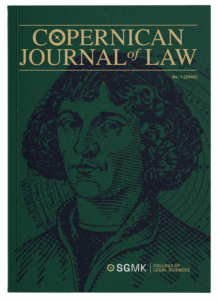
Copernican Journal of Law, No. 1 (2024)
Full Issue
Introduction
From the Editor-in-Chief | 7
Paweł Lewandowski
Articles
Does Convergence of Law and Morality Exist? Polemics of H. L. A. Hart with R. Dworkin | 9-16
Maciej Andrzejewski
The Role of the Parliament in European Integration: Croatia’s Lessons for Ukraine | 17-38
Khrystyna Bidonko
On the Scientific Nature of Legal Scholarship | 39-51
Tomáš Gábriš
Financing of the Catholic Church in Slovakia under the Optics of the Basic Treaty between the Slovak Republic and the Holy See | 53-66
Róbert Gyuri, Peter Molitoris
Acquisition and Loss of the Right of Patronage according to the 1917 Code of Canon Law | 67-75
Ryszard Pankiewicz
The Status of Churches under Public Law in the Czech Republic and their Transition to Financial Self-Sustainability | 77-90
Stanislav Přibyl
Artificial Intelligence within Corporate Structures: The Case of Argentina’s Simplified Joint Stock Companies | 91-114
Carlos E. Vanney



